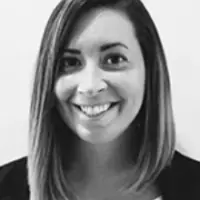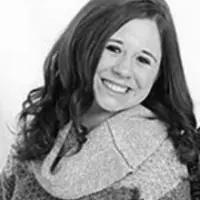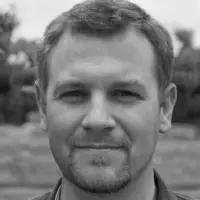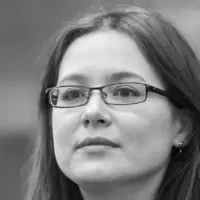About Liberation Way
I like that this facility offers a physical wellness program to help with the healing process. Staff members may work with you to improve your nutrition and increase your physical activity. These treatment approaches can assist with decreasing your stress levels so you have less desire to use substances.
Your group sessions will give you an outlet to share your experiences with your recovery and gain insights from your peers. The counselor leading the sessions will likely cover topics such as coping skills and relapse prevention. Liberation Way strives to give you an environment that makes you feel comfortable while you’re there, which is why the facility features relaxing outdoor spaces and communal areas for socializing.
The trained staff members who will assist you in your recovery include addiction specialists, therapists and other support staff. In individual therapy, your therapist will help you understand your addiction and gain tools to overcome it. Therapeutic approaches they may use to treat you include motivational interviewing and cognitive behavioral therapy. You’ll learn the connection between your thoughts and behaviors and how you can change them to support your recovery.
Rehab Score
Other Forms of Payment
Self-pay involves paying for treatment out of your own pocket. You can use savings or credit, get a personal loan, or receive help from family and friends to fund your treatment. If you don't have insurance or your insurance plan doesn't cover a specific program, self-pay can help ensure you still get the care you need.
Private insurance refers to any kind of healthcare coverage that isn't from the state or federal government. This includes individual and family plans offered by an employer or purchased from the Insurance Marketplace. Every plan will have different requirements and out of pocket costs so be sure to get the full details before you start treatment.
Addiction Treatments
Levels of Care
Intensive Outpatient Programs (IOP) are for those who want or need a very structured treatment program but who also wish to live at home and continue with certain responsibilities (such as work or school). IOP substance abuse treatment programs vary in duration and intensity, and certain outpatient rehab centers will offer individualized treatment programs.
12-step programs are addiction recovery models based on Alcoholics Anonymous (AA). A number of substance abuse programs (including some drug and alcohol rehab centers) use the 12 steps as a basis for treatment. Beginning steps involve admitting powerlessness over the addiction and creating a spiritual basis for recovery. Middle steps including making direct amends to those who've been hurt by the addiction, and the final step is to assist others in addiction recovery in the same way. 12-Step offshoots including Narcotics Anonymous (NA), Cocaine Anonymous (CA), Dual Recovery Anonymous (DRA), Sex and Love Addicts Anonymous (SLAA) and Gamblers Anonymous (GA).
Liberation Way’s reality-based treatment programs are designed to keep clients connected to necessary therapies while they begin to engage actively in the world: work, family, friends. Clients will reside in sober living homes while receiving their clinical therapy at one of their treatment facilities.
Drug and alcohol addiction often takes a heavy toll on one’s body. Over time, a physical dependence can develop, meaning the body physiologically needs the substance to function. Their detox program is an outpatient model for individuals requiring detoxification from drugs or alcohol, with many of the benefits of inpatient detoxification but in a less-restrictive, cost-effective environment. This is the first step in a continuum of substance-abuse treatment that ultimately leads to recovery. Their Ambulatory Detoxification services consist of a medically managed, monitored and structured detoxification service provided on an outpatient, voluntary basis and delivered by physicians or other service personnel acting under the supervision of a physician.
At certain points in the recovery process, it's important to have support available 24/7. 24-hour clinical care offers a safe environment in which to recover from drug or alcohol addiction in peace, knowing medical detox and other treatment will happen with professionals on hand.
Outpatient Programs (OP) are for those seeking mental rehab or drug rehab, but who also stay at home every night. The main difference between outpatient treatment (OP) and intensive outpatient treatment (IOP) lies in the amount of hours the patient spends at the facility. Most of the time an outpatient program is designed for someone who has completed an inpatient stay and is looking to continue their growth in recovery. Outpatient is not meant to be the starting point, it is commonly referred to as aftercare.
Treatments
The goal of treatment for alcoholism is abstinence. Those with poor social support, poor motivation, or psychiatric disorders tend to relapse within a few years of treatment. For these people, success is measured by longer periods of abstinence, reduced use of alcohol, better health, and improved social functioning. Recovery and Maintenance are usually based on 12 step programs and AA meetings.
Drug rehab in Pennsylvania is devoted to the treatment of addiction. Levels of care, treatment methods, and settings differ, but the aim of each program is to end drug dependency and empower participants to achieve long-term recovery.
Opioid rehabs specialize in supporting those recovering from opioid addiction. They treat those suffering from addiction to illegal opioids like heroin, as well as prescription drugs like oxycodone. These centers typically combine both physical as well as mental and emotional support to help stop addiction. Physical support often includes medical detox and subsequent medical support (including medication), and mental support includes in-depth therapy to address the underlying causes of addiction.
Substance rehabs focus on helping individuals recover from substance abuse, including alcohol and drug addiction (both illegal and prescription drugs). They often include the opportunity to engage in both individual as well as group therapy.
Programs
Adult rehab programs include therapies tailored to each client's specific needs, goals, and recovery progress. They are tailored to the specific challenges adult clients may face, including family and work pressures and commitments. From inpatient and residential treatment to various levels of outpatient services, there are many options available. Some facilities also help adults work through co-occurring conditions, like anxiety, that can accompany addiction.
Young adulthood can be an exciting, yet difficult, time of transition. Individuals in their late teens to mid-20s face unique stressors related to school, jobs, families, and social circles, which can lead to a rise in substance use. Rehab centers with dedicated young adult programs will include activities and amenities that cater to this age group, with an emphasis on specialized counseling, peer socialization, and ongoing aftercare.
Clinical Services
Cognitive Behavioral Therapy is a short-term, goal-oriented psychotherapy treatment that takes a hands-on, practical approach to problem-solving. CBT is helpful for those whose thought processes have become skewed or irrational. Cognitive behavioral therapy helps with developing awareness of inaccurate or negative thinking, so that the individual can view challenging situations more clearly and respond to them in a more effective way. Simply said, if you change the way you think, you will change the way you behave. CBT is most often used in the treatment of substance abuse, depression, as well as anxiety disorders.
Dialectical Behavior Therapy (DBT) iDBT was developed by Marsha Linehan in the 80s to help those with Borderline Personality Disorder. Since then, DBT has been used throughout the treatment of other personality disorders, suicidal ideation, PTSD, depression/mood disorders, anxiety, substance abuse, as well as eating disorders. “Dialectical” means synthesis or integration of opposites. In DBT, acceptance and change are considered to be the opposites of integration. DBT supports the process of learning acceptance and changing skills. The four major components of DBT are mindfulness, distress tolerance, emotional regulation, and interpersonal effectiveness.
Research clearly demonstrates that recovery is far more successful and sustainable when loved ones like family members participate in rehab and substance abuse treatment. Genetic factors may be at play when it comes to drug and alcohol addiction, as well as mental health issues. Family dynamics often play a critical role in addiction triggers, and if properly educated, family members can be a strong source of support when it comes to rehabilitation.
Group therapy is any therapeutic work that happens in a group (not one-on-one). There are a number of different group therapy modalities, including support groups, experiential therapy, psycho-education, and more. Group therapy involves treatment as well as processing interaction between group members.
In individual therapy, a patient meets one-on-one with a trained psychologist or counselor. Therapy is a pivotal part of effective substance abuse treatment, as it often covers root causes of addiction, including challenges faced by the patient in their social, family, and work/school life.
Life skills trainings involve all the skills a person must have in order to function successfully in the world. These include time management, career guidance, money management, and effective communication. Truly successful addiction recovery is based on the ability to not only live substance-free, but to thrive. Life skills teaches the practical necessities of functioning in society, which sets clients up for success in life, and therefore sobriety.
Motivational Interviewing (MI) is a directive, client-centered counseling style for eliciting behavior change by helping clients to explore and resolve ambivalence. MI is especially helpful in substance abuse treatment as clients can often be ambivalent about the treatment process due to fear, resistance, shame, or denial. The goal of MI is to aid the client in clarifying his or her own perceptions and beliefs in order to direct him or her in a more decisive way.
One of the objectives of recovery is to eliminate the negative behaviors and replace them with healthy, positive behaviors. One area that is most affected during active addiction is nutrition. Alcohol is an example of a substance that leads to empty calories; giving the body the false sense of fullness. This leads to a poor appetite and poor dieting which contributes to health issues and also an increase in mood swings. Individuals will learn the importance of eating meals, preparation of meals and the food groups.
Amenities
-
Private Setting
-
Yoga Studio
Staff & Accreditations
Staff

Lauren Barrett, MA, LPC, LAC, NCC
Clinical Supervisor

Lisa Fobian, CADC, DRCC
Counselor

Kristina Chocolate, MS
Counselor Assistant

Sabrina Wilton, MS
Counselor Assistant

Sonia Horwitz, MS, CADC
Counselor Assistant

Sabrina Wilton, MS
Counselor

Mark Gattuso
Counselor Assistant

Jaclyn Lewin
Counselor Assistant
Accreditations

The Joint Commission, formerly known as JCAHO, is a nonprofit organization that accredits rehab organizations and programs. Founded in 1951, the Joint Commision's mission is to improve the quality of patient care and demonstrating the quality of patient care.
Joint Commission Accreditation: Yes
Contact Information
1035 Virginia Drive
Suite 130
Fort Washington, PA 19034